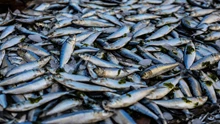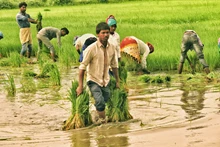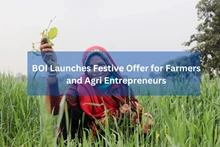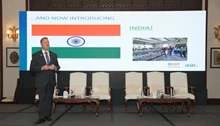
The International Crops Research Institute for the Semi-Arid Tropics (ICRISAT) has unveiled a pioneering breakthrough in agriculture with the introduction of the world's first pigeon pea speed breeding protocol. This innovation is poised to significantly bolster food security efforts, particularly in the dryland regions of Asia and Africa. Traditionally, the process of breeding pigeon pea, a staple crop in tropical and subtropical regions, has been laborious and time-consuming, with development cycles stretching up to thirteen years.
However, the newly introduced speed breeding protocol revolutionizes this process by leveraging material breeding and exerting precise control over environmental factors such as photoperiod, temperature, and humidity. As a result, the breeding cycle has been dramatically reduced to just two to four years, a stark contrast to the conventional timeline of seven years.
Impact on Global Food Security and Soil Health
Pigeon Pea holds immense significance for global food security and soil health, owing to its nutritional value and adaptability to dryland conditions. Dr. Jacqueline Hughes, Director General of ICRISAT, emphasized the profound implications of this innovation, particularly for major pigeon pea-producing regions such as India, Myanmar, Kenya, Tanzania, and Mozambique. She commended the researchers and partners involved, highlighting the protocol's potential to enhance food and nutrition security in dryland areas.
Overcoming Historical Challenges in Pigeon Pea Breeding
Historically, pigeon pea breeding efforts have been impeded by the crop's long growth cycle and sensitivity to day length, resulting in limited varietal releases over six decades. The new speed breeding protocol directly confronts these challenges, empowering researchers to develop climate-resilient, nutritionally superior, and higher-yielding pigeon pea varieties at an unprecedented pace.
Recognition of Government Support and Collaborative Efforts
Dr. Arvind Padhee, IAS, Principal Secretary, Department of Agriculture and Farmers' Empowerment, Government of Odisha, acknowledged the protocol's potential to rapidly develop climate-resilient pigeon pea varieties, emphasizing the crucial support from the Government of Odisha. Additionally, significant backing from various governmental and non-governmental entities, including the Rashtriya Krishi Vikas Yojana (RKVY), Government of Odisha, the Indian Council of Agricultural Research, and the Government of India, has played a pivotal role in realizing this groundbreaking achievement.
Outlook for Self-Sufficiency and Global Impact
With India's increasing demand for pigeon pea, projected to necessitate substantial imports by March 2024, the introduction of this open-access protocol couldn't be timelier. It not only offers a blueprint for rapid and efficient pigeon pea variety development but also contributes significantly to the overarching goal of achieving self-sufficiency in pulse production. The success of this protocol, facilitated by ICRISAT's Rapid Generation Advancement Facility and supported by generous donors through CGIAR initiatives, epitomizes the spirit of collaboration in agricultural innovation.
#PressRelease
— ICRISAT (@ICRISAT) February 20, 2024
ICRISAT Breakthrough: World's First #Pigeonpea Speed Breeding Protocol to Bolster #FoodSecurity in Drylands of #Asia and #Africa
This innovative protocol significantly shortens the breeding cycle to just two to four years, compared to the traditional seven-year… pic.twitter.com/KiyuDFyIbw











